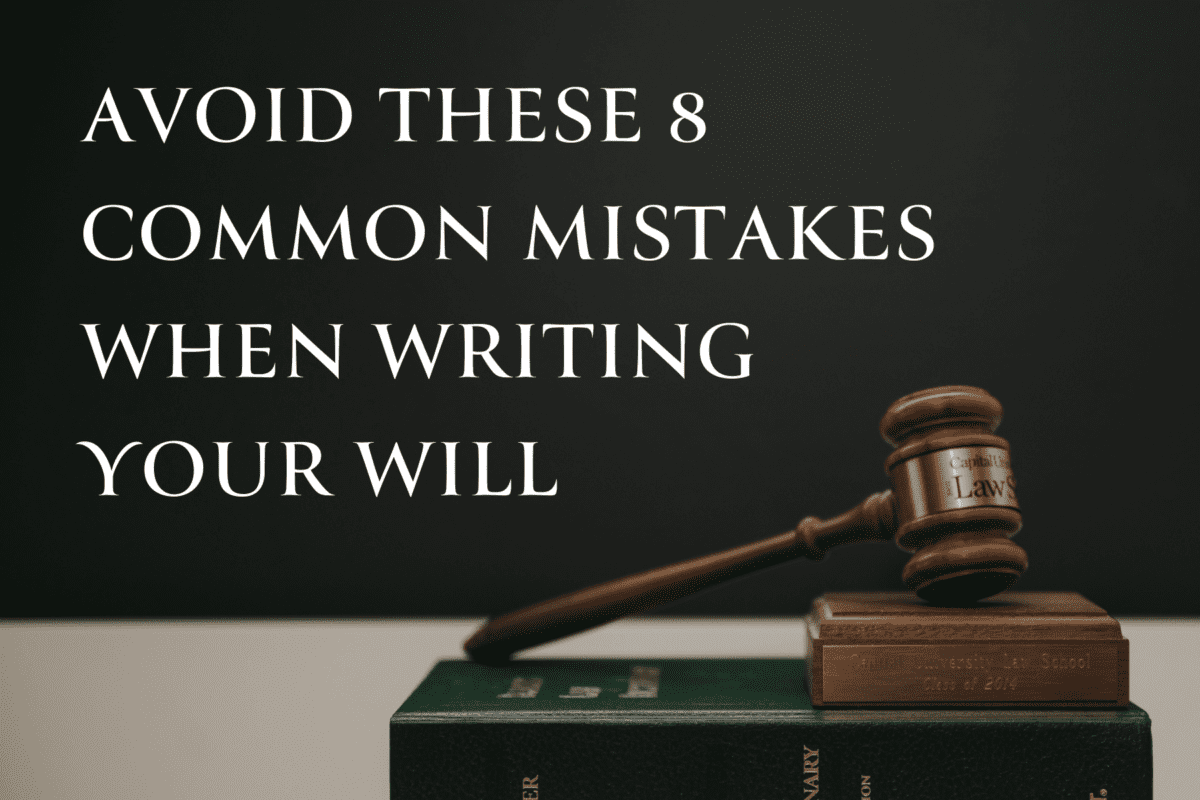
While writing your own will may seem like a cost-effective and straightforward solution, it’s important to consider the potential pitfalls. Although DIY wills may appeal to those seeking privacy, simplicity, or savings, they often lack the expertise needed to address complex legal requirements and unique family dynamics.
Hey there! I’m Amanda Waltz, your Northwest, Ohio probate attorney with a passion for helping people navigate the complexities of estate planning. With over a decade of experience in the legal realm, I’ve seen it all – including the common pitfalls DIY estate planners often stumble into. I aim to empower individuals and families, ensuring their legacies are protected with precision and care. So, whether you’re contemplating your first will or looking to rectify past mistakes, count on me to be your trusted guide through every step of the process. Let’s safeguard your future, together.
Writing a will is a crucial step in estate planning, ensuring that your wishes are carried out and your loved ones are provided for after you’re gone. However, navigating the process can be complex, and even seemingly minor errors can have significant consequences. Let’s explore these eight common will writing mistakes, helping you create a comprehensive and legally sound document.
- Procrastination
- One of the most common mistakes people make is procrastinating on writing their will. None of us like to dwell on our mortality, but putting off this important task can leave your loved ones in a difficult situation if something unexpected happens. Take the time to create your will now, providing clarity and peace of mind for yourself and your family.
- DIY Approach
- While it may be tempting to use a DIY will kit or online template, these options often lack the customization and legal expertise necessary to address your unique circumstances adequately. Cookie-cutter solutions may overlook crucial details or fail to comply with state laws, leading to disputes or challenges down the line. Investing in professional legal guidance ensures that your will accurately reflects your intentions and complies with all legal requirements.
- Failing to Update
- Life is constantly changing, and failing to update your will to reflect significant life events can render it ineffective. Births, deaths, marriages, divorces, changes in financial circumstances, and relocation are all events that should prompt a review of your will. Regularly revisiting and updating your will ensures that it remains relevant and reflects your current wishes.
Read more about updating your will after major life changes here.
- Not Considering Digital Assets
- In today’s digital age, many of us have valuable digital assets such as online accounts, cryptocurrencies, and intellectual property rights. Failing to account for these assets in your will can lead to confusion and difficulties for your loved ones. Include provisions for the management and distribution of digital assets to ensure they are properly handled according to your wishes.
- Forgetting to Appoint Guardians
- If you are a parent, choosing who will care for your children is one of the top reasons you need a will. Failing to designate guardians can result in emotional custody battles or court-appointed guardianships, potentially leaving your children’s future uncertain. Take the time to select responsible and trustworthy individuals who share your values and parenting philosophy.
- On this topic, it’s important to decide how the assets will be transferred to the minor. Even when you appoint a guardian (which you should) the probate court is the ultimate guardian. The assets need to be monitored by the probate court and the balance of the assets will be released to the individual when they turn 18. If you name a guardian and also name that guardian as custodian for the minor child until the age of (between 21 and 25) then there are less court costs during the administration of the funds and you can delay your child from receiving a large lump sum until they get a little older.
- Neglecting to Name Executors
- An executor is responsible for administering your estate, including distributing assets, paying debts, and handling legal matters. Without an executor or choosing an unsuitable candidate can lead to delays, disputes, and mismanagement of your estate. Select someone you trust who is capable of carrying out the responsibilities of executorship efficiently.
- (Learn more about the responsibilities of an executor here).
- Ambiguous Language
- Clarity really is essential when drafting your will to avoid misunderstandings or disputes among beneficiaries. Using vague or ambiguous language can lead to confusion regarding your intentions, potentially resulting in costly legal battles to interpret your wishes. Be clear and specific in your instructions, leaving no room for interpretation.
- Failing to Seek Legal Advice
- Perhaps the most significant mistake you can make when writing your will is failing to seek professional legal advice. Estate planning laws vary by state and are complex, making DIY solutions risky. An experienced estate planning attorney can provide personalized guidance tailored to your unique circumstances, ensuring that your will is comprehensive, legally binding, and accurately reflects your wishes.
Writing a will is a vital aspect of responsible estate planning, providing peace of mind and protection for you and your loved ones. By avoiding these common mistakes and seeking professional legal guidance, you can create a will that accurately reflects your wishes and minimizes the potential for disputes or challenges in the future. Don’t leave your legacy to chance—take proactive steps to create a comprehensive and legally sound will today.
Reach out to me to schedule a free consultation call to discuss your unique situation and begin your estate planning journey today.
